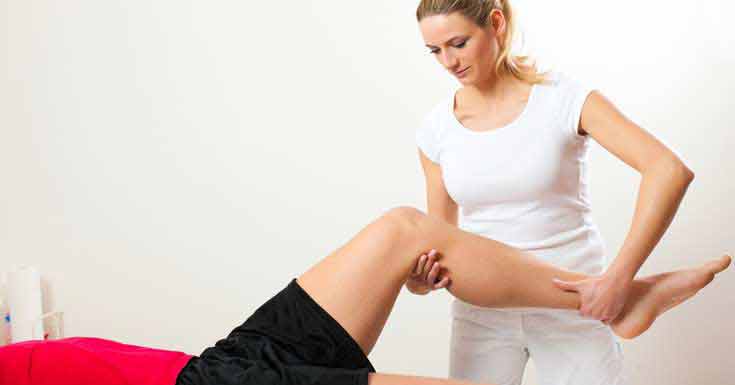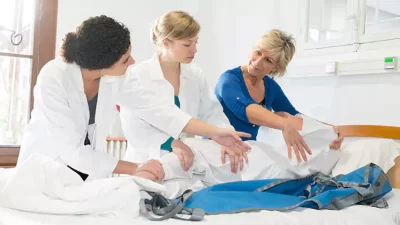Your life is characterized by constant movement. You walk, run, lift things, bend, stretch, and so on. The mobility is powered by the joints, which are prone to injuries and pain. Joint pain can last for a few days only or it can be more persistent and it has a tremendous potential to affect your quality of life.
Dealing with pain in joints isn’t uncommon, and millions of men and women suffer from these issues. Throughout this article, you’re going to learn more about joint pain in women, its causes, treatments, and much more.
Causes of Joint Pain in Women
When it comes to joint pain, a single cause that contributes to pain and discomfort you experience doesn’t exist. Instead, a wide array of causes lead to the sensation of pain, and you’ll learn more about them below.
Osteoarthritis

Osteoarthritis (OA) is the most common form of arthritis and occurs when the protective cartilage on the ends of the bones wears out as you age.
According to the CDC, women are at a higher risk of developing OA than men. For example, men have 45% lower chances of getting knee OA and 36% decreased the risk of hip OA than ladies.
Despite the fact that OA can affect any joint in the body, it primarily develops in the spine, hands, knees, and hips. Symptoms of this kind of arthritis develop slowly and gradually worsening over time. They include the following:
- Bone spurs
- Grating sensation
- Loss of flexibility
- Pain
- Stiffness of joints
- Tenderness
Rheumatoid Arthritis

Rheumatoid arthritis (RA) is defined as a chronic inflammatory disorder that affects one or more joints. The CDC reports that the incidence of RA is generally two to three times higher in women than men. RA develops when the immune system attacks the lining of the membranes surrounding your joint i.e. synovium. Due to inflammation, synovium thickens and destroys the cartilage and bone within the joint. Moreover, ligaments and tendons holding joint together start stretching and weakening. As a result, joint loses its shape and alignment. Symptoms associated with RA include:
- Fatigue, weight loss, fever
- Joint stiffness, especially after long periods of inactivity or in the morning
- Warm, swollen, tender joints
Other Autoimmune Diseases
Besides RA, other autoimmune diseases are more prevalent in women than in men. For example:
- Lupus
- Scleroderma
- Multiple sclerosis (MS)
- Psoriasis
Fibromyalgia
Fibromyalgia is a disorder indicated by widespread musculoskeletal pain followed by fatigue, mood, memory, and sleep problems. The definite cause of this disorder doesn’t exist, but scientists assume multiple factors play a role such as infections, heredity, physical or emotional trauma.
Hormones
Hormones such as estrogen participate in a multitude of processes in our body. Estrogen levels fluctuate and induce different symptoms including joint pain. How? Estrogen affects your joints by keeping the inflammation down and as you already know; inflammation leads to the pain sensation.
Many women with RA, OA, lupus, and fibromyalgia report they experience more pain just before or during the menstrual period. This is the time when estrogen levels drop. It’s needless to mention that menopausal women are more prone to joint pain and guess what – levels of estrogen significantly decline at this point.
Additionally, women feel pain in a higher intensity than men do because endorphins, the body’s painkillers, work more effectively in men than in women.

Overweight/obesity
When discussing joint pain causes in women it is impossible to ignore overweight or obesity. Why? The reason is simple; the more weight you carry, the bigger the pressure on the joints.
As a result, you experience more pain. The journal Rheumatology published results of the study which showed that overweight or obese patients with arthritis in their knees report a greater level of pain than slimmer patients with the same disease.
Treatment of Joint Pain
It is of huge importance to consult your doctor when experience joint pain. Your health care provider will perform a physical exam and order necessary tests to diagnose the exact cause of joint pain and recommend adequate treatment. In most cases, the treatment includes:
- Medications (prescription and over-the-counter, depending on the severity of pain and the underlying condition). Have a look at Curafen Review which could help you monumentally to reduce the pain in the joints.
- Surgery (last resort, recommended only when “traditional” treatments don’t work)
- Lifestyle adjustments
- Occupational therapy
- Physical therapy

Lifestyle Adjustments
Even in cases when joint damage can’t be repaired entirely, it’s still possible to manage your condition by adhering to the treatment recommended by your doctor and modifying your lifestyle. To find joint pain relief, you should:
- Apply cold gels to the affected areas
- Apply warm compresses to relieve stiffness and ice packs to numb the pain
- Avoid strenuous activities
- Do low-impact exercises such as water aerobics
- Eat well-balanced diet abundant in anti-inflammatory foods
- Get a massage
- Meditate
- Practice yoga or tai chi
- Quit smoking
- Stay active
- Strive to lose weight
- Try acupuncture
- Wear shoes with soft soles or cushions
Conclusion
Joint pain is quite common and affects millions of women around the world. The source of pain and discomfort in your joints can be due to a number of causes; which is why you shouldn’t avoid going to your doctor’s to get an exact diagnosis.
Being proactive is the best way to put the joint pain under your control and prevent it from affecting your quality of life.







 This article changed my life!
This article changed my life! This article was informative.
This article was informative. I have a medical question.
I have a medical question.
 This article contains incorrect information.
This article contains incorrect information. This article doesn’t have the information I’m looking for.
This article doesn’t have the information I’m looking for.